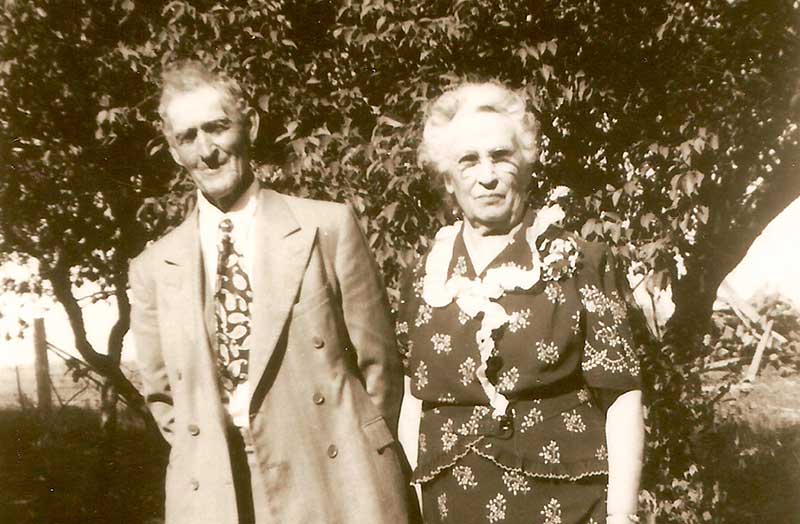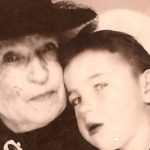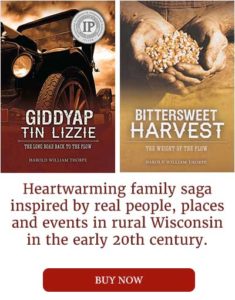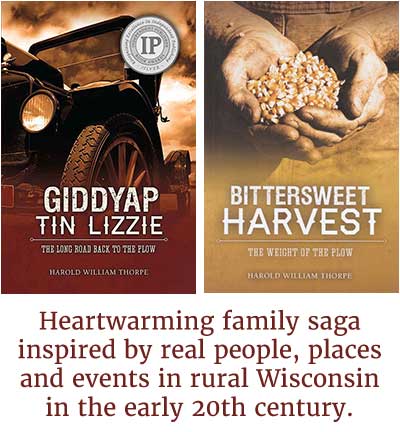I was only a boy, but I’d visit Great-Uncle Nick just to hear him talk. He was raised among the Cornishmen of Linden, Wisconsin, and he absorbed their habits and the Cornish linguistic variation of the English language. Uncle Nick was half-Irish and half-Cornish, but he was Cornish to the core. The Irish brogue is celebrated throughout the world, but the Cornish dialect is something to behold, as well.
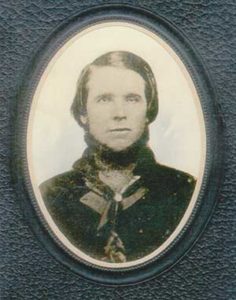 We lived up the hill from Great-Uncle Nick who lived with his son Calvin, both retired from the farm. When I didn’t have a friend to play with, I’d race down the hill to Nick’s house, supposedly to talk him into a game of euchre, a popular card game in southwest Wisconsin. I knew that Great-Uncle Nick and Calvin loved to play that game, especially when they could outmaneuver this audacious stripling. But mostly, I hoped that Great-Uncle would conjure up another story to tell. The story didn’t matter; I was fascinated with his telling.
We lived up the hill from Great-Uncle Nick who lived with his son Calvin, both retired from the farm. When I didn’t have a friend to play with, I’d race down the hill to Nick’s house, supposedly to talk him into a game of euchre, a popular card game in southwest Wisconsin. I knew that Great-Uncle Nick and Calvin loved to play that game, especially when they could outmaneuver this audacious stripling. But mostly, I hoped that Great-Uncle would conjure up another story to tell. The story didn’t matter; I was fascinated with his telling.
It was an unusual day when they’d say no to my challenge. They’d call a friend over so we could play a four-handed game, me and the friend against the savvy card sharks, Nick and Calvin.
It didn’t take much persuading before Nick began a story that, in itself, was interesting, but more so because of his quaint and expressive dialect. The friendly, amusing, and slightly sing-song delivery was compelling and pleasant to the ear. I’d get caught up in the rhythm and lose track of the story, but that didn’t matter. His quaint voice dominated the moment.
Great-Uncle Nick told many stories, only a few that I remember, but one stands out. His father, Joseph Stephens, had homesteaded in northwestern North Dakota. He died in the early 1900s. Nick and my grandfather, Will Fitzsimons, decided to take a trip out that way to explore and make plans for renting Joseph’s land. They traveled by train as far as the rails would take them, then rented a car to drive as close as the roads allowed, and finally walked to the property, located on the banks of the Missouri River.
Nick told me they got tired of walking, so they stopped at a tavern to rest and take some refreshment. Nick said, “We stopped in this tavern and were minding our business when a strapping fellow approached and asked, ‘Where you from?’ We told him Wisconsin, which led to his next question, ‘What’s your names?’ I said, ‘I’m Stephens,’ and pointing to Will, I explained, ‘My brother-in-law’s Fitzsimons.’
“I could see that Fitzsimons name caught his attention. He stepped closer to Will, looked him up and down, and asked, ‘You’re not that world champion boxer Bob Fitzsimons, are you?’ And Will, never one to let a fun possibility slip by, said, ‘That’s me. I’m that Fitzsimons.’”
Great-Uncle Nick paused his story for a moment to explain, “He could see that I’m high upon the legs and Will barely came up to my shoulder. That probably made him skeptical, but that’s only part of it.” Nick paused, snickered to himself, and continued.
“This fellow took a step back, looked me over, looked Will over again, and scornfully proclaimed, “Yaw don’t look so tough to me. Why, there’s a guy dawn the road who’d beat the hell outa you.”
Great-Uncle Nick burst into laughter when he thought back to that fellow’s response. To use the Cornish expression that I’d heard him use many times, I’d say that Great-Uncle Nick laughed like a piskey. That’s a Cornish saying about a pixie or a fairy.
Great-Uncle Nick continued, “I think that silenced Will for a while—but not for long. It takes more than one rebuff to shut down an Irishman.”

